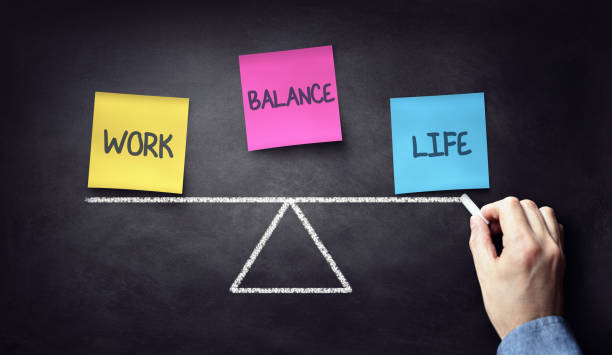The Future of Work-Life Balance
The concept of work-life balance has been a popular topic in recent years, as more people seek to reconcile their professional and personal lives. With rapid technological breakthroughs and the changing nature of work, many people have questioned whether the future of work will allow for more time for family, hobbies, and personal well-being.
The lines between work and life are blurring. With the rise of remote work and technology that enables us to be “always on,” the typical 9-to-5 workweek is becoming obsolete. This transition raises an important question: how can we achieve a healthy work-life balance in this new era?
Work is no longer limited to a physical office space. Our jobs can now follow us anywhere, including our homes and vacations. While flexibility can be freeing, it can also lead to burnout and an unbalanced work-life relationship.

The Importance of Work-Life Balance
Having a healthy work-life balance is critical for both physical and emotional health. A balanced lifestyle can reduce stress, boost work satisfaction, and improve general health. As a result, these perks can boost employee productivity, creativity, and loyalty.
Several psychological and sociological principles support the importance of work-life balance:
- Self-Determination Theory (SDT): SDT identifies three primary psychological demands in humans: autonomy, competence, and relatedness. Organisations can address these demands and develop intrinsic motivation by giving employees more control over their work environment and schedule, resulting in increased job satisfaction and engagement.
- Conservation of Resources (COR) Theory: According to COR theory, people strive to get, maintain, and defend valuable resources like time and energy. A strong work-life balance allows employees to preserve resources, reducing burnout and improving general well-being.
- Social Identity Theory: This theory proposes that individuals receive a sense of belonging and self-esteem from their social groupings, which include family and friends. Organisations can help their employees develop a stronger sense of social identity and satisfaction by allowing them to spend more time with their families.

So, how can we navigate this new landscape? Here are a few tips:
- Set Boundaries: Establish clear boundaries between work and personal time. This might mean turning off work notifications during non-working hours or designating a specific workspace in your home.
- Prioritize Self-Care: Make time for activities that recharge you, such as exercise, hobbies, or spending time with loved ones.
- Learn to Say No: Don’t be afraid to decline additional work or commitments if you’re feeling overwhelmed.
- Disconnect Regularly: Take breaks from technology to disconnect and recharge.
- Find a Work-Life Balance That Works for You: There’s no one-size-fits-all approach to work-life balance.Experiment with different strategies until you find what works best for you.
As the future of work evolves, we must prioritise our well-being and maintain a healthy work-life balance. Setting boundaries, practicing self-care, and learning to say no will help us thrive in this new era of work.
What are your strategies for maintaining a work-life balance in today’s digital age? Share your thoughts in the comments below.






